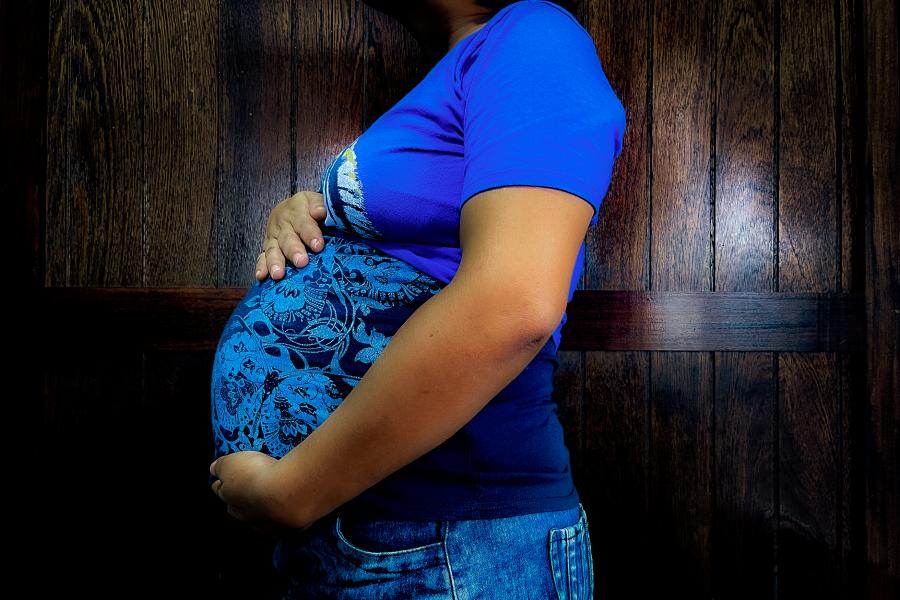Global needs in 2024
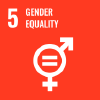
Gender-based violence is an umbrella term for multiple human rights violations more frequently inflicted on women and girls. It includes sexual and intimate partner violence, which occurs in all displacement settings where UNHCR is present. It also includes child and forced marriage, female genital mutilation, and so-called “honour related crimes”. The threat of gender-based violence may cause somebody to flee from their home, it may pose great dangers during their flight, and it may undermine their safety once they have taken refuge elsewhere.
It is estimated that one in three women are exposed to gender-based violence during their lifetime. Conflict and displacement heighten the risks. The conflict in Sudan exemplifies the needs when responding to gender-based violence in emergencies: a June 2023 UNHCR statement on Sudan described spiralling violence, and protection and field teams assisting refugees in Central African Republic, Chad, Egypt and South Sudan were deeply concerned by grave abuses including conflict-related sexual violence reported by refugee women and girls. Yet the Sudan emergency response remained severely underfunded, as highlighted in UNHCR’s 2023 Underfunded report and its September 2023 update.
Global needs for Gender-based violence in 2024
$368 million
+6% vs 2023 current budget
Regional needs
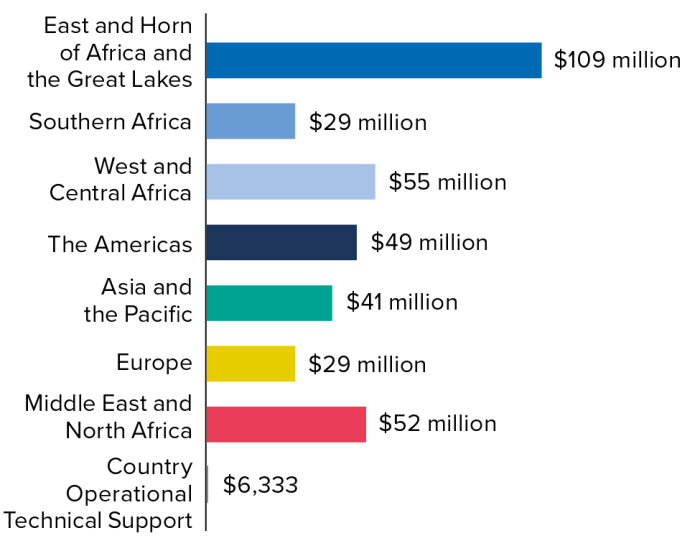
Top ten operational budgets for Gender-based violence (USD millions)
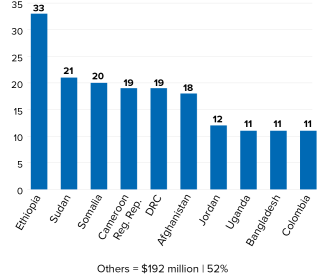
How UNHCR will make a difference
In 2024, UNHCR seeks to implement life-saving gender-based violence prevention and response programming in 110 countries (including those covered by UNHCR’s multi-country offices).
UNHCR’s work is guided by its 2020 “Policy on the prevention of, risk mitigation and response to gender-based violence” and adheres to the Interagency minimum standards for gender-based violence in emergencies programming.
UNHCR will promote refugees’ inclusion in local services for gender-based violence survivors and in prevention programming that addresses the root causes of gender-based violence.
UNHCR will strengthen gender-based violence coordination in refugee and mixed settings and will deploy gender-based violence specialists to establish life-saving services from the very start of emergencies. UNHCR will also scale up case management services for survivors, a coordinated approach ensuring timely access to appropriate psychosocial, medical, safety and legal services.
UNHCR’s operations gather feedback regarding critical gaps in gender-based violence response programmes by assessing the level of general awareness of available gender-based violence services, and by surveying survivors’ level of satisfaction with gender-based violence case management services in a safe and ethical manner. For example, in Bangladesh in 2023, UNHCR aimed for 90% of survivors to be satisfied with the support they received through gender-based violence case management services. In 2024, UNHCR is increasing that target to 100%.
To tackle the root causes of gender-based violence, UNHCR implements and contextualizes evidence-based prevention programmes, such as Engaging Men in Accountable Practice (EMAP), the Girl Shine programme, which focuses on the empowerment of adolescent girls, and SASA! Together, which uses a community mobilization approach that has been shown to effectively decrease violence against women. UNHCR monitors displaced people’s general attitudes towards violence against women to measure progress towards effectively preventing violence from occurring in the first place.
A sample of core outcome indicators
4.3 Proportion of survivors who are satisfied with gender-based violence case management services
| Country | Population Types | Baseline | Target 2023 | Target 2024 |
| Bangladesh | Refugees and Asylum-seekers | 80% | 90% | 100% |
| Ethiopia | Refugees and Asylum-seekers | 96% | 100% | 100% |
| Jordan | Refugees and Asylum-seekers | 87% | 100% | 100% |
| Somalia | IDPs | 70% | 75% | 85% |
| Uganda | Refugees and Asylum-seekers | 95% | 100% | 100% |
In 2024, in addition to its broader localization efforts, UNHCR will reinforce the leadership and expertise of organizations led by forcibly displaced or stateless women. It will increase direct partnerships with them to implement gender-based violence prevention and response programmes, including through UNHCR’s small-scale grant agreements, which are designed to reduce administrative and reporting barriers. UNHCR will also sponsor the participation of women-led organizations in global and regional fora to ensure humanitarian assistance policies pertaining to gender-based violence remain grounded in the lived experience of refugees and displaced women.
Gender-based violence budget requirements are increasing in 2024, reflecting an expected overall increase in the number of forcibly displaced and stateless people. Almost half of the total funding requirement is in just 10 country operations, with the greatest needs in Ethiopia, Sudan, Somalia, Cameroon, the Democratic Republic of the Congo, Afghanistan, Jordan, Uganda, Bangladesh and Colombia.
If funding falls short of needs, forcibly displaced women and girls in particular will face increased risks of gender-based violence, while the quality and availability of services will be directly impacted, leaving survivors vulnerable to further abuses.
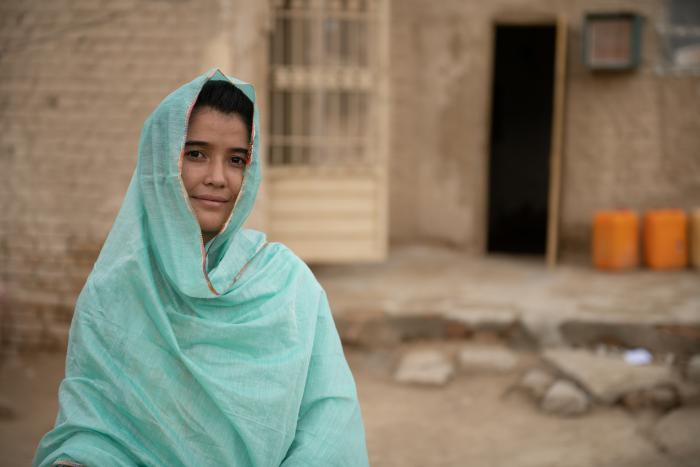

L’Oréal supports UNHCR protection and emergency activities in Pakistan
L’Oréal provided emergency support to approximately 8.5 million people whose lives were overturned by Pakistan's devastating floods in 2022. Its contribution has enabled UNHCR to identify and address critical protection needs, allowing people in vulnerable communities in Sindh, Balochistan, and Khyber Pakhtunkhwa provinces to rebuild their lives. Already present in 10 countries, the collaboration aims to expand over the next few years, helping women and girls to find a way out of their refugee situation. L'Oréal's contribution will help to promote women's employability, protect gender-based violence survivors, support socioeconomic integration, and bring urgent assistance when a displacement crisis first erupts.
